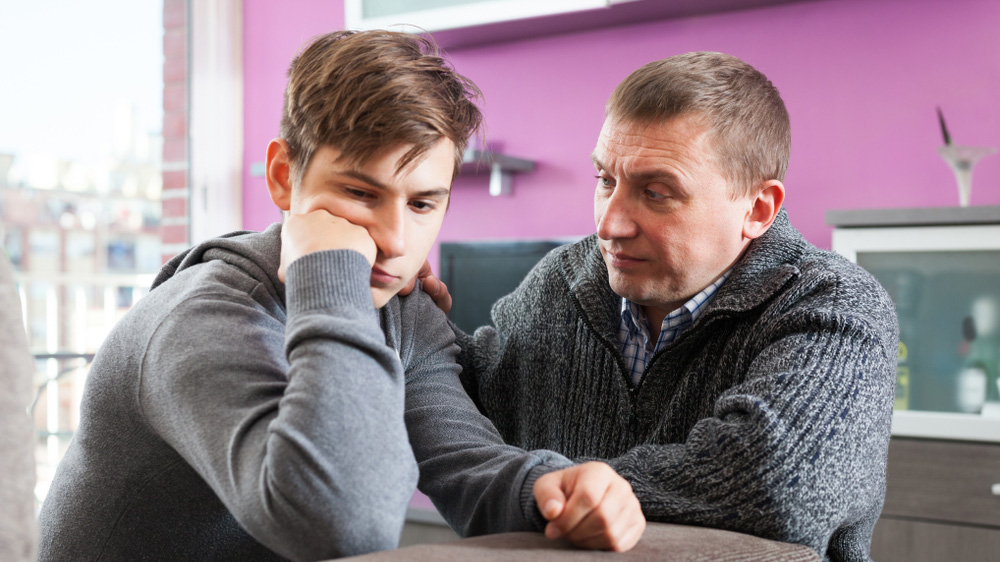Family relationships are among the deepest and most complex in our lives. They shape our emotional foundation, but they can also be the source of deep wounds. Whether it’s old conflicts, unspoken tensions, or painful betrayals, forgiving within the family is a tremendous challenge. Yet, this forgiveness is essential for lightening our hearts and fostering emotional well-being. But how can one learn to forgive family wounds without denying their own suffering or minimizing the impact of the wounds endured?
1- Understanding Forgiveness: A Liberating Act
Forgiving does not mean forgetting or excusing the harm that was done. Nor does it imply forced reconciliation. Forgiveness is, above all, a personal act that allows one to free themselves from the burden of resentment and anger. Psychological studies show that forgiveness reduces stress, and anxiety, and promotes better emotional health. It is an internal process that can occur even without direct contact with the person who caused the harm.
Forgiveness is often perceived as a gift to the other person, when in reality, it is a gift to oneself. Holding onto resentment nurtures chronic pain that ultimately poisons us.
2- Identifying and Acknowledging Emotions
Before forgiving, it is essential to recognize the wound and accept the emotions it generates: sadness, anger, frustration, or a sense of betrayal. Too often, we tend to suppress these emotions under the pretext that “it’s in the past” or that “family is sacred.” However, denying pain only anchors it more deeply.
Allowing space for these emotions helps identify their source and understand how they continue to affect us today. Keeping a journal, talking with a trusted person, or even seeking therapy can be valuable tools in this process.
3- Putting Oneself in the Other’s Shoes: The Key to Empathy
Each family member has their own experiences, wounds, and defense mechanisms. Understanding the motivations or personal struggles of the person who hurt us does not justify their actions but helps soften our perspective. It may be useful to ask:
- What were this person’s circumstances and struggles at the time?
- Were they aware of the hurt they were causing?
- Would I have acted differently if I had been in their place?
This approach does not excuse the actions but allows for greater emotional distance and a more peaceful mindset.
4- Expressing Feelings: Constructive Dialogue
If the situation allows, it may be beneficial to express one’s emotions to the person involved. A sincere exchange, without accusations or blame, can lead to better understanding and help ease tensions. It’s helpful to use “I” statements rather than “you” statements, such as:
- “I felt hurt when you said/did that.”
- “I experienced a lot of sadness in that situation.”
The goal is not to assign blame but to open the door to dialogue and, possibly, reconciliation.
5- Accepting That Forgiveness Is a Journey
Forgiveness is not an instantaneous act. It is a process that can take time, requiring movement between pain, understanding, and acceptance. It is normal to experience resistance, doubts, or emotional setbacks.
It is important to respect one’s own pace and not force forgiveness. Sometimes, forgiveness will come naturally through self-reflection; other times, it will require a conscious effort to move forward, this is a path to forgive family wounds.
6- Seeking Support and Resources
No one should carry the burden of family wounds alone. The support of friends, partners, or even specialized therapists can be incredibly helpful. Practices such as meditation, therapeutic writing, or sophrology can also facilitate letting go.
Finally, it’s important to remember that every family faces conflicts and that forgiveness, even if it seems impossible at first, is always an option. It does not mean denying what happened but choosing not to be defined by past pain.
Conclusion: Forgiveness as Liberation
Learning to forgive family wounds is ultimately about giving oneself the opportunity to live with greater lightness. It is a choice that requires courage, patience, and self-compassion. Whether or not it leads to reconciliation, forgiveness is, above all, an act of self-love—a way to no longer be imprisoned by a past that cannot be changed.
In the end, to forgive is to choose freedom and move forward toward renewed serenity.
Articles en anglais :
- Harvard Health – “The Power of Forgiveness in Mental Health” Lien
- Psychology Today – “Why Forgiveness Heals” Lien
- The Journal of Positive Psychology – “Forgiveness and Emotional Well-being” Lien
- American Psychological Association – “Forgiveness: A Pathway to Healing” Lien
- Scientific American – “Neuroscience of Forgiveness” Lien


